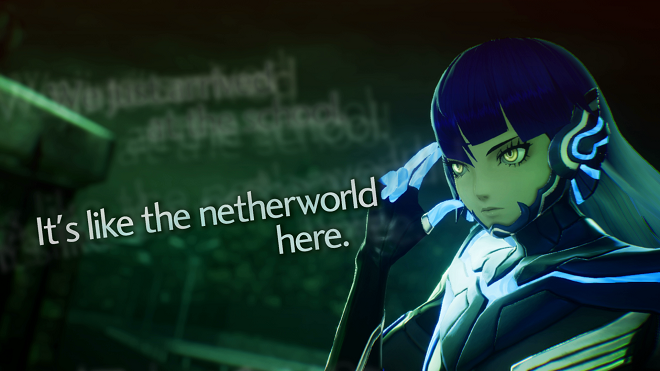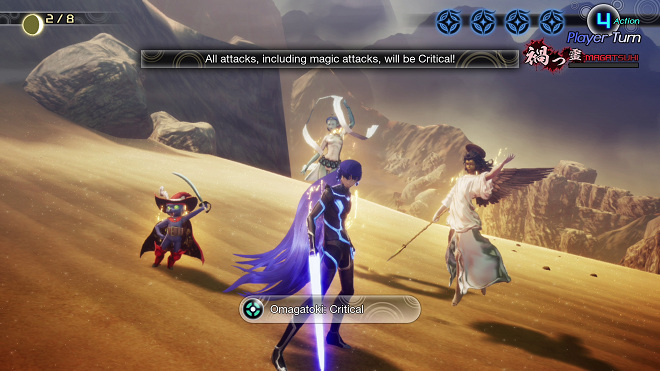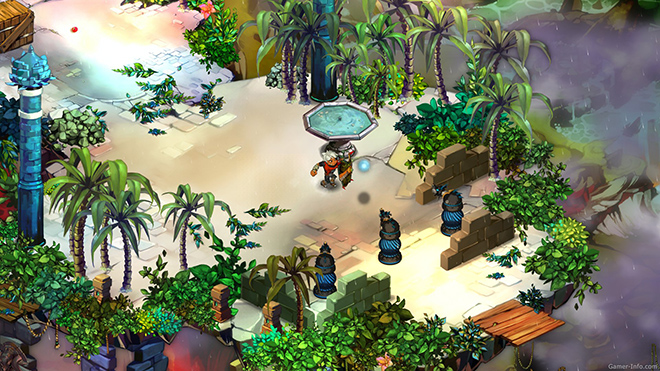Cognition Dissemination: Shin Megami Tensei Is Not Persona, and That’s Fine

The long-awaited release of Shin Megami Tensei V for Nintendo Switch is a mere four days away as of this posting, which means one particular comparison was inevitably going to happen: Measurements regarding how the game stacks up to the Persona titles. There was already a taste of this through Polygon’s preview, in which the writer lamented missing features she held dear in Persona 5 Royal. The issue was how it came off as criticizing the game for what it wasn’t rather than what it was, red meat for Shin Megami Tensei fans who chomp at the bit to remind people that um actually the Persona series is a spinoff of the SMT brand. (I won’t say I didn’t feel that way.) Persona has considerably usurped the SMT brand in terms of popularity.
The Polygon comparison was a mere appetizer for the main course that awaited when the SMTV review embargo was lifted, to no surprise given what occurred around Shin Megami Tensei IV’s release in 2013. The IGN review delivered the goods, with a Twitter preview from the reviewer which described the game as “Persona without the heart.” The fallout was easy to predict: The comparison in the tweet made fans roll their eyes, and it created meme on par with the “Dark Souls of Persona” around SMTIV’s release.
It’s also generated a discussion as to whether the fanbase is being a little too stuck up about all this. I really hate to be one of those guys who points out that the truth is complicated and a little in between, but… the truth is complicated and a little in between.

As I mentioned above, it’s better when the SMT games are judged on their own merits instead of being criticized for being something they aren’t and never promised to be. The Persona games, starting with Persona 3, have partly become social experiences where the main character is encouraged to make friends and develop relationships with their party members (primarily starting with Persona 4 for the latter), in addition to gameplay elements like dungeon crawling and battling. The games, needless to say, have a lot of variety. There’s a reason why they’re all so goddamned long.
The SMT games, however, are primarily about exploration and dungeon crawling, with focuses on recruiting and fusing demons and battling through harsh conditions the protagonist encounters. They’re both franchises from Atlus (a Sega company, by the way) and part of the overall Megaten franchise, but the two have different approaches. That’s good. Variety is good, and the developers and publishers involved feel that way even though the SMT franchise has incorporated a few aesthetic and thematic elements from the newer Persona games.
That said, impressions from Persona fans trying out SMT games should be encouraged. There were plenty of Persona fans who played the SMTIV titles as their first experience with the main series. But SMTV will be an even larger gateway thanks to the presentation jump and semi-Japanese school setting (though most of the game reportedly takes place in post-apocalyptic Tokyo, referred to as “Da’at”). IGN’s reviewer and Polygon’s previewer both missed elements they enjoyed in Persona 5, but it was clear both still liked SMTV in the end.
It’s also true that some fans can take this too far. It should go without saying that the writers of the articles should not be chastised or harassed, nor should their tastes be scrutinized. SMT fans are slowly gaining a sordid reputation of having chips on their shoulder, and the last thing anyone should want is to push away or alienate newer or potential fans, or even make them feel bad if the main SMT games aren’t to their tastes.

There is legitimate concern that Persona-isms could wade too far into the SMT series considering it’s not an unknown phenomenon among Japanese games, though not necessarily Atlus games. See what happened with Falcom games after the Trails franchise ascended in popularity, mainly starting with the Trails of Cold Steel series. Trails’ style has moseyed into Falcom’s other franchises, including Ys and especially Xanadu with Tokyo Xanadu. The chance of this happening with SMT may not be that high, however, especially if SMTV sells well. None of these justifies elitism behavior.
Some of us also couldn’t help but have a little fun with all this, including Atlus themselves on Twitter, referencing an infamous Boss Baby meme. (A meme that went through my mind immediately after seeing the IGN blurbs.) If anyone was concerned about them leaning too far into this, they made it clear that they’re welcoming to all Atlus fans, like any company would. Of course they want all their games to sell.
Any SMT fan should know by now that Persona is Atlus’ biggest brand and will continue to be, meaning it will receive the majority of attention going forward. The best path forward for the SMT series, however, will involve it receiving inspiration from the recent Persona titles to continue welcoming more fans while concurrently remaining its own series. Whether this will continue to happen will depend on how well SMTV performs in both Japan and the worldwide market, and Atlus (and Nintendo, publishing it in Europe) isn’t holding back with advertising it within their budget. The results should be worthwhile.





